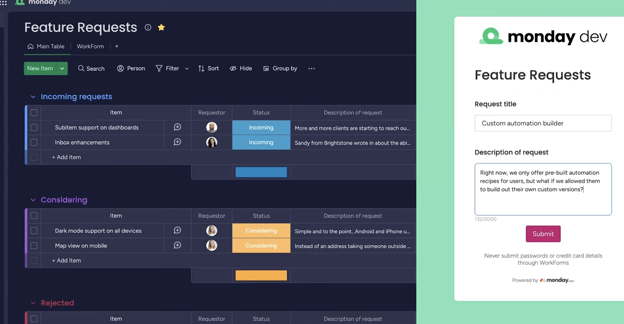Enterprise Project Management for Strategic Success

Managing projects across various teams and departments can be a real puzzle for large organisations. Enterprise project management (EPM) offers a way to make this process smoother and more aligned with your business’s big-picture goals. With EPM, you can streamline tasks, manage resources more effectively, and keep everything on track.
EPM goes beyond just handling individual projects. It helps link each project to your company’s broader objectives, ensuring that all efforts are geared towards common goals. This approach makes it easier to see the big picture and make better decisions that can drive long-term success.
Getting the right mix of tools and strategies is key to making EPM work for you. You need a structured plan, reliable tools, and a clear understanding of roles within your organisation. When done right, EPM not only enhances project outcomes but also boosts overall business performance. Keep reading to find out how enterprise project management can transform the way your company operates.
Understanding Enterprise Project Management (EPM)
Enterprise Project Management (EPM) helps organisations run multiple projects across teams and departments. This keeps everything on track with business goals and ensures efficient use of resources.
Unlike regular project management, which manages one project at a time, EPM oversees many projects at once. Regular project management focuses on specific deliverables and timelines for a single project. EPM, however, looks at the broader picture. It ensures all projects align with the company’s strategic objectives. This method balances resources, manages project dependencies, and keeps an eye on complex, long-term goals. EPM relies on careful planning, a standardised approach, and tools that handle large-scale operations effectively.
The difference between EPM and regular project management is clear. EPM handles a broader scope, focusing on multiple projects to create a bigger impact. It aims for long-term success by aligning projects with key business goals, while regular project management is more about completing individual tasks.
monday.com focuses on ensuring that the broader scope and multiple project work well together helping to achieve a streamlined, no-fuss approach to complicated business goals and project tasks.
Key Elements of EPM for Strategic Execution
Risk Analysis
- Identify potential problems before they become big issues.
- Plan ways to deal with risks and keep projects on track.
- Ensure early detection of risks to save time and costs.
Structured Estimating
- Standardise predictions for costs, resources, and timelines.
- Make smarter decisions with consistent and accurate estimates.
- Keep budgets and schedules reliable.
Project Reviews
- Regularly check progress to make sure everything stays aligned with business goals.
- Address challenges quickly to avoid delays.
- Use reviews to guide future projects and improve processes.
Information Systems
- Use tools that centralise data for easier analysis and reporting.
- Make better decisions with up-to-date information.
- Enhance visibility across all projects to keep everyone informed.
These elements are crucial for EPM to support strategic execution effectively. They ensure projects are aligned with business goals, risks are managed well, and resources are used wisely. With strong estimating, ongoing reviews, and good systems in place, EPM helps companies achieve their objectives more efficiently.
How to Implement EPM Effectively
Determining Organisational Roles
Effective EPM starts with clear roles within the company. Identify everyone involved, from the EPM Director to portfolio managers. Make sure each person understands their responsibilities. This lays the foundation for smooth project execution.
Building Stakeholder Trust
Getting executives and team leaders on board is vital. Show how EPM benefits the organisation with clear, measurable outcomes. Highlight improvements in decision-making, resource allocation, and goal alignment. Use visual aids like dashboards and status updates to communicate effectively.
Standardising Methodologies
Consistency is crucial for EPM success. Adopt a unified project management approach that fits your organisation’s needs. This creates a common framework for assessing, training, and prioritising projects. It also ensures everyone is on the same page.
Choosing the Right Tools
Selecting the right tools makes managing EPM easier. Look for software that offers scheduling, accounting, process management, and time tracking features. These tools help streamline workflows and keep everything on track. Project templates and roadmaps can turn high-level strategies into actionable plans. monday.com may be the right tool for your business.
Benefits of EPM for Your Business
Projects Aligned with Business Goals
EPM ensures that all projects are in line with the company’s overall goals. This reduces wasted effort and improves the focus of your teams. Aligned projects drive better outcomes and make more meaningful contributions to the company.
Improved Decision-Making
Access to real-time data helps leaders make informed decisions. Seeing up-to-date progress, resource use, and risks allows for timely adjustments. This keeps projects on track and addresses challenges early.
Greater Operational Efficiency
Centralising project management reduces redundancies and fosters better collaboration. Teams save time by eliminating duplicate tasks. This boosts productivity and allows teams to focus on high-impact activities.
Enhanced Collaboration
EPM tools improve transparency and standardise workflows. This keeps all teams connected, even when they are distributed across different locations. Clear communication and shared goals improve teamwork and reduces misunderstandings.
upstream are the experts in Enterprise Project Management
EPM plays a crucial role in helping large organisations manage multiple projects efficiently. By aligning projects with strategic goals, EPM improves operational efficiency and collaboration. It ensures better decision-making through real-time data and structured methodologies. Implementing EPM requires a clear understanding of roles, stakeholder trust, standardised methodologies, and the right tools.
Ready to streamline your project management process and align your projects with business goals? Discover how the monday.com team from upstream can help you implement effective EPM strategies. Reach out now and take your project management to the next level.



